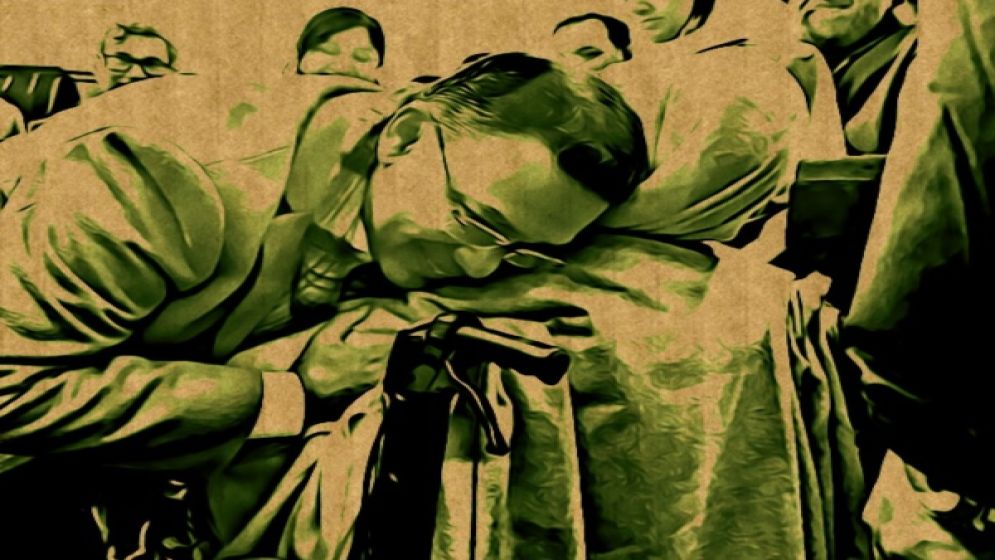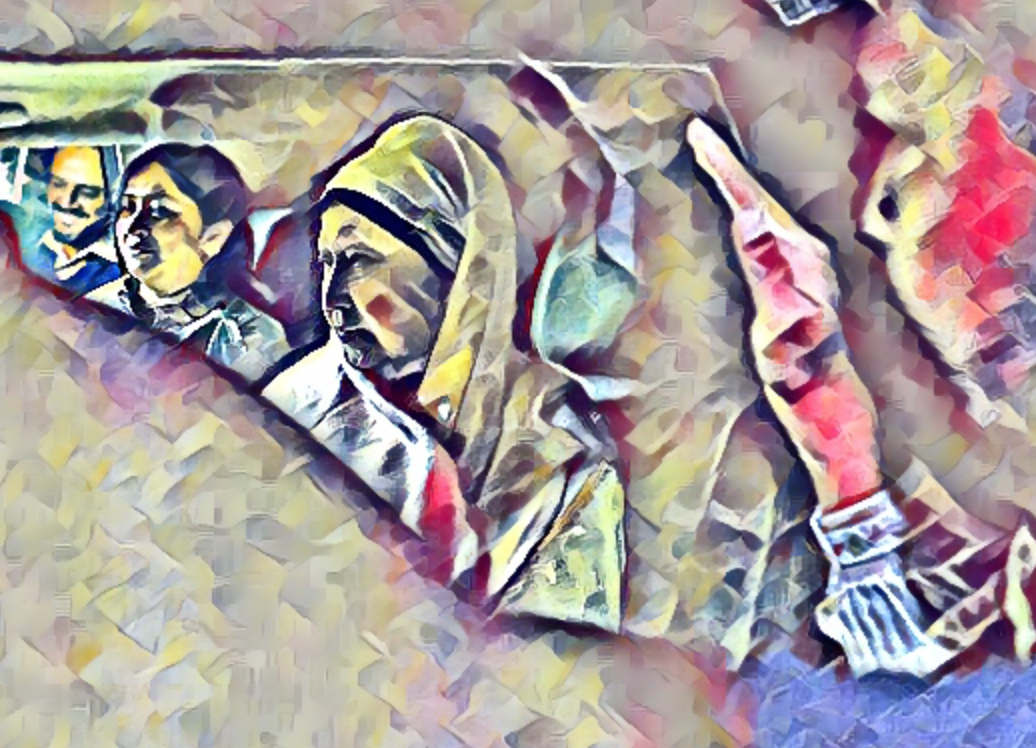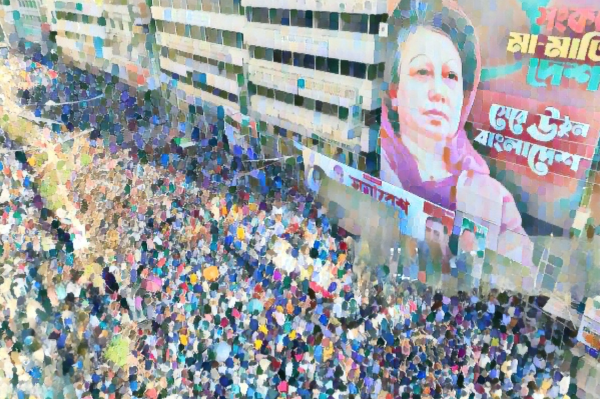The emotional reunion that touched the nation….

In the storied history of Bangladesh's politics, few moments have been as emotionally charged or symbolically resonant as the long-awaited reunion of Begum Khaleda Zia and her eldest son, Tarique Rahman, on a chilly afternoon at London’s Heathrow Airport.
After seven years of forced separation—an exile dictated by political vendettas and an unrelenting cycle of state-sponsored persecution—the two were finally reunited.
The image of Tarique Rahman, holding his frail yet unbowed mother in his arms, transcends mere familial affection; it speaks to a broader narrative of resilience, sacrifice, and defiance against an oppressive regime.
The 79-year-old former Prime Minister of Bangladesh, who led the country for three terms, embarked on her journey from Dhaka on January 7, aboard a specially arranged air ambulance provided by the Amir of Qatar.
While the flight was primarily intended to transport her for urgent medical treatment at The London Clinic, it carried with it much more than a patient seeking care—it was a symbolic escape from years of systemic abuse and political targeting.
As the ambulance made its way through Dhaka, the streets were lined with thousands of supporters, a living testament to the enduring loyalty she commands, and the airlift was delayed by nearly two hours due to the overwhelming crowds.
When the plane finally touched down at Heathrow at 2:55 PM Bangladesh time, Tarique Rahman and his wife, Dr. Zubaida Rahman, were waiting anxiously on the tarmac.
In a poignant moment, the Acting High Commissioner of Bangladesh to the UK, Mohammad Hazrat Ali Khan, presented Khaleda Zia with a bouquet of flowers, a small yet significant gesture that acknowledged her struggle and her importance in the nation’s political saga.
Khaleda Zia’s suffering over the past decade marks one of the darkest periods in Bangladesh's political history.
Diagnosed with liver cirrhosis in 2021, her health has been further compromised by diabetes, arthritis, and severe complications affecting her kidneys, lungs, heart, and eyes.
Despite her medical team's repeated urgings for her to seek advanced care abroad, the government of former Prime Minister Sheikh Hasina had consistently denied her permission to leave the country. The airlift, then, was not just a medical necessity, but a hard-won victory against a backdrop of relentless political persecution.

Khaleda Zia's unyielding resilience
For years, Begum Khaleda Zia faced not compassion, but calculated cruelty. Under the oppressive rule of the Awami League government, she was subjected to systemic abuse—kept under virtual house arrest, deprived of medical care, and forced to endure inhumane conditions.
Her party workers and supporters were hunted, silenced, and tortured. Yet through it all, Khaleda Zia remained unbroken, steadfast in the face of relentless pressure.
In August 2024, following the fall of the Awami League government, President Mohammed Shahabuddin issued an executive order for Khaleda Zia's unconditional release. The news ignited a spark of hope—not only for her family, but for a nation desperate for justice.
Her reunion with her son, Tarique Rahman, at Heathrow Airport was more than a private family moment; it was a historic turning point. Since 2008, Tarique had been living in exile in London, burdened with the weight of his mother’s suffering and the fractured state of their political party.
Their embrace was not just an emotional release, but a powerful symbol of political revival, a sign of renewed hope for a country long stifled by authoritarian rule.
After the emotional reunion, Tarique personally drove his mother to The London Clinic, where she now receives care from some of the world’s top medical professionals.
The ambulance that carried her was not simply a vehicle—it was a chariot of defiance, carrying with it the spirit of resilience and a future brimming with possibility.
Khaleda Zia’s life story is one of monumental strength. She was thrust into politics following the assassination of her husband, President Ziaur Rahman, and from the darkest moments of grief, she emerged as a leader capable of restoring Bangladesh’s national pride.
Her tenure as Prime Minister saw the country rise in stature, guided by her commitment to democratic values and national integrity.
But under the regime of Sheikh Hasina, Khaleda Zia became a target. She was ousted from her home, wrongfully imprisoned, and deliberately denied essential healthcare.
The government spared no effort to break her spirit—but it failed. Khaleda Zia’s strength lay not just in her political skills, but in her quiet dignity and unwavering resolve.
Her journey is not simply one of personal suffering; it is a reflection of Bangladesh’s broader democratic struggle.
Attempts to erase her from public memory only made her name synonymous with resistance. From the time her convoy was blocked in 2014 by sand trucks to the dismantling of her party and the silencing of her supporters, Khaleda Zia stood firm.
Her endurance through these trials is a testament to her indomitable will—and a symbol of the resilience of the people who continue to stand by her.

A symbol of grace
In a world often marred by political cruelty, Begum Khaleda Zia stands as a beacon of grace and integrity. Unlike her oppressors, she has never resorted to personal attacks or crude rhetoric.
In moments of weakness, frailty, and suffering, she has demonstrated a strength that surpasses the arrogance of those who wield power.
As Khaleda Zia begins her treatment at The London Clinic, millions of Bangladeshis watch from afar. For them, she is far more than a political figure—she is a motherly figure, an enduring symbol of resilience.
Her reunion with her son, Tarique Rahman, is not just a personal moment of triumph; it is a powerful symbol of hope for all who still believe in justice, democracy, and human dignity.
But Khaleda Zia’s struggle is far from over. Her health complications are severe, and the road to recovery will undoubtedly be long and difficult.
Yet, if history has shown us anything, it’s that Khaleda Zia does not surrender. She does not give up.
The powerful image of Tarique Rahman holding his mother at Heathrow Airport is more than a mere photograph—it is a symbol of victory over oppression, resilience against tyranny, and hope amidst a darkened political landscape.
The regime of Sheikh Hasina tried every possible tactic to silence and destroy Khaleda Zia, but they failed miserably. Despite their relentless efforts to break her, Khaleda Zia remains unbowed.
The future of Khaleda Zia and the Bangladesh Nationalist Party (BNP) remains uncertain, but one thing is indisputable—Bangladesh has not forgotten her.
History will remember her not as a victim, but as a warrior. Not as a fragile, ailing figure, but as a political giant who stood tall in the face of relentless adversity.
In an age where politics often breeds cruelty, Khaleda Zia’s story stands as a testament to the strength of the human spirit.
As she begins her treatment in London, the people of Bangladesh hold their breath, pray for her recovery, and await the day when the iron lady of Bangladesh will return to her homeland—victorious, vindicated, and unbroken.
For now, the image of her emotional reunion with Tarique Rahman will remain etched in the hearts of millions—a timeless reminder of a mother’s love, a son’s devotion, and the unyielding spirit of a leader who refused to break, even when the world conspired to shatter her.
—
Writer- H. M. Nazmul Alam is an Academic, Journalist, and Political Analyst.

